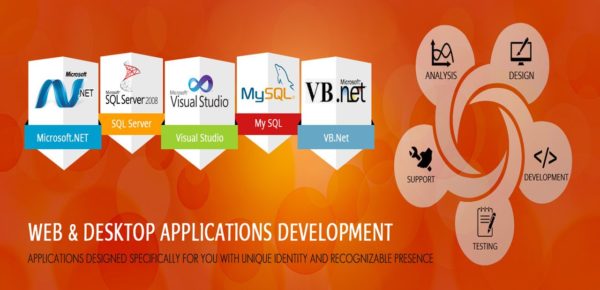What’s Mobile Application?
A mobile application software or mobile app is an application software designed to run on mobile devices such as smartphones and tablet computers.
Top 5 Mobile App Development Tools
There are several app building platforms that develop apps without digging a hole in the customer’s pocket. It is important to choose the right platform for building a mobile app. We’ve put together top five mobile app development tools that are popular in the industry.
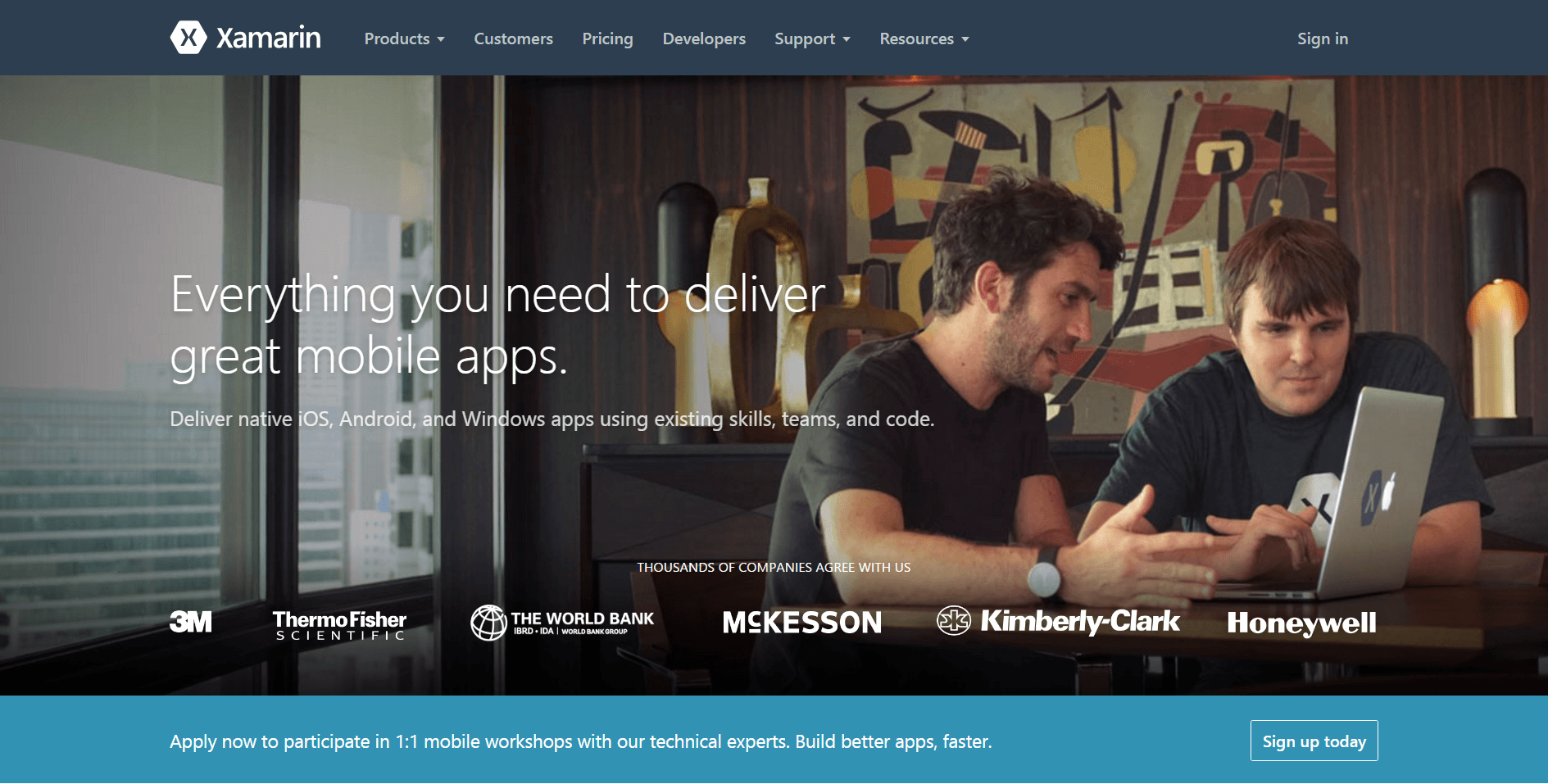
1. Xamarin
Xamarin is the preferred choice for native applications. Xamarin reuses business logic layers and data access across platforms. This can be beneficial when functions such as large amounts of local data, offline mode, and image recognition need to be implemented. Being built on the C# programming language, it runs on the .NET common language infrastructure. This tool is widely used to build apps for iOS, Windows, and Android platforms. Xamarin is a mono framework that enables communication with the API of mobile devices. It also allows mobile application developers create scalable and robust applications with the help of its QA and testing features.
One of the greatest advantages of Xamarin is that it tends to result in fewer bugs and provides faster time to market. Lesser codes means fewer bugs and a single test can validate the code of both the platforms.
Xamarin believes in collaboration and so, it gives an opportunity to the developers to select from a host of free and paid components. Xamarin Component Store includes UI controls, third party web services, and cross-platform libraries. Backends like Microsoft Azure, Salesforce, and others can be integrated easily with Xamarin. With so many crowns, Xamarin is the king of cross platform app development.

2. Appcelerator
Usually, Appcelerator “accelerates” the app development process as it allows the developers to create apps with fewer lines of code. It supports iOS, Android, Windows, and browser-based HTML5 applications. Whether one needs to develop a native app or a cross-platform application, Appcelerator can be the right choice. It mainly helps the development when application reacts with a web service.
What makes Appcelerator popular is that it is not just based on the concept of “write once, run everywhere.” It has several platform specific API’s, features, and user interface. As its code is platform targeted, it ensures enhanced performance. Without learning coding of Android and iOS platforms individually, developers can develop reliable mobile applications.
Appcelerator’s Titanium uses JavaScript and XML to build native and hybrid mobile applications. It is also useful in building mobile web apps. It has a huge community of developers and they gather at the Appcelerator Open Mobile Marketplace where developers and users can buy, sell, and share templates, modules, and extensions.
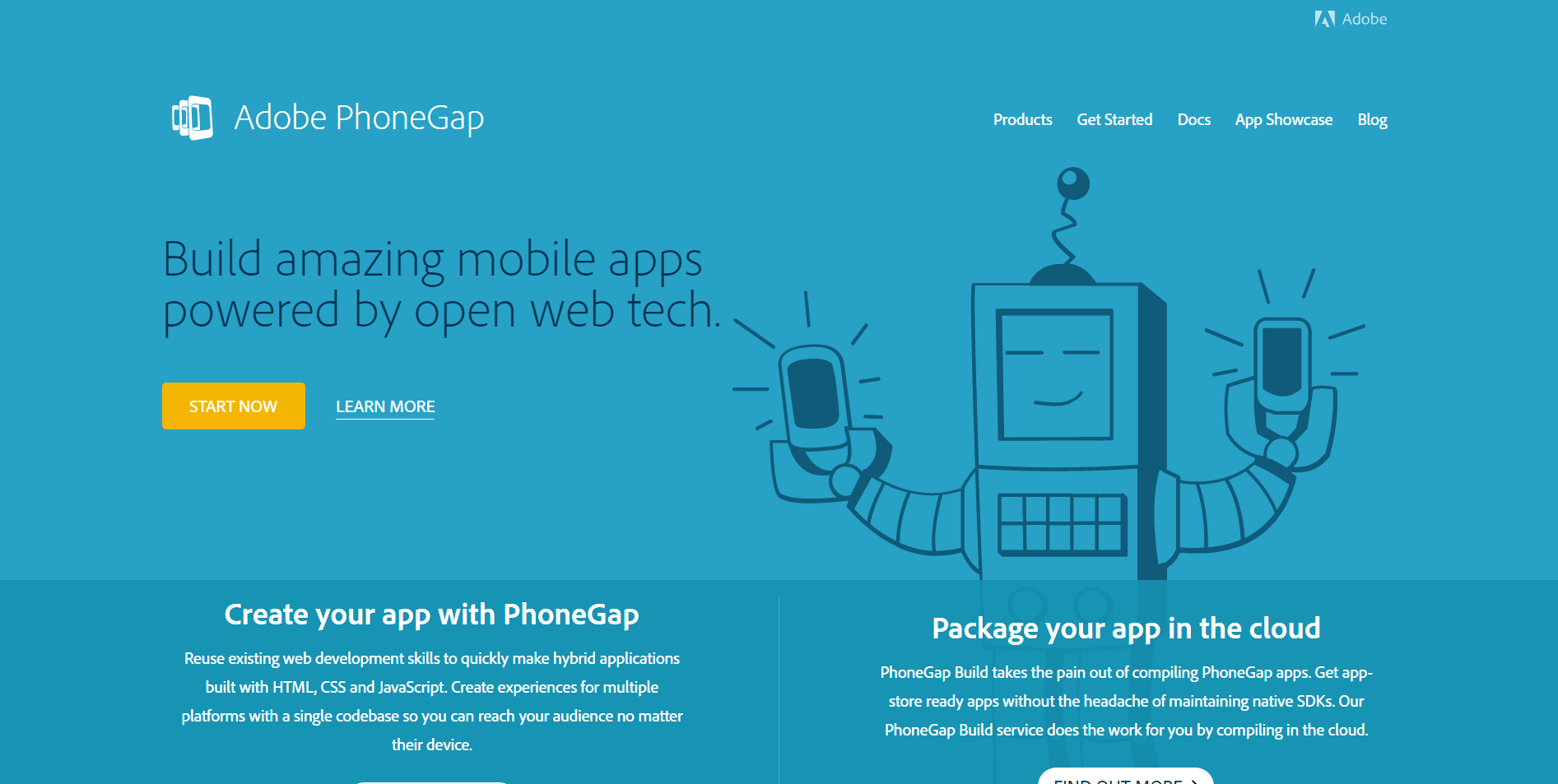
3. PhoneGap
PhoneGap falls into the category of cross-platform app development. One of the major benefits of PhoneGap is that it can be used for creating a single app that works on all mobile devices. It works on HTML5, CSS3, and JavaScript.
The framework is integrated with several libraries to improve the functionality and save a lot of time. Being a flexible tool, it enables development of various mobile applications with lesser efforts. Developers can extend the functionality of the application with the help of plug-in architecture.
Applications developed using PhoneGap work uniformly well over multiple platforms rendering the same look and feel. Moreover, the powerful backend system increases the speed of development of mobile apps. Another amazing feature of the tool is that it taps into the hardware of the device such as the camera, accelerometer, geo-location, etc.
PhoneGap has an Open Source License, so it is a free framework for mobile app development. It has a large community of developers for assembling new codes and modules to improve the quality of the apps built. It is a robust tool for building apps without possessing any special skill set or expertise.
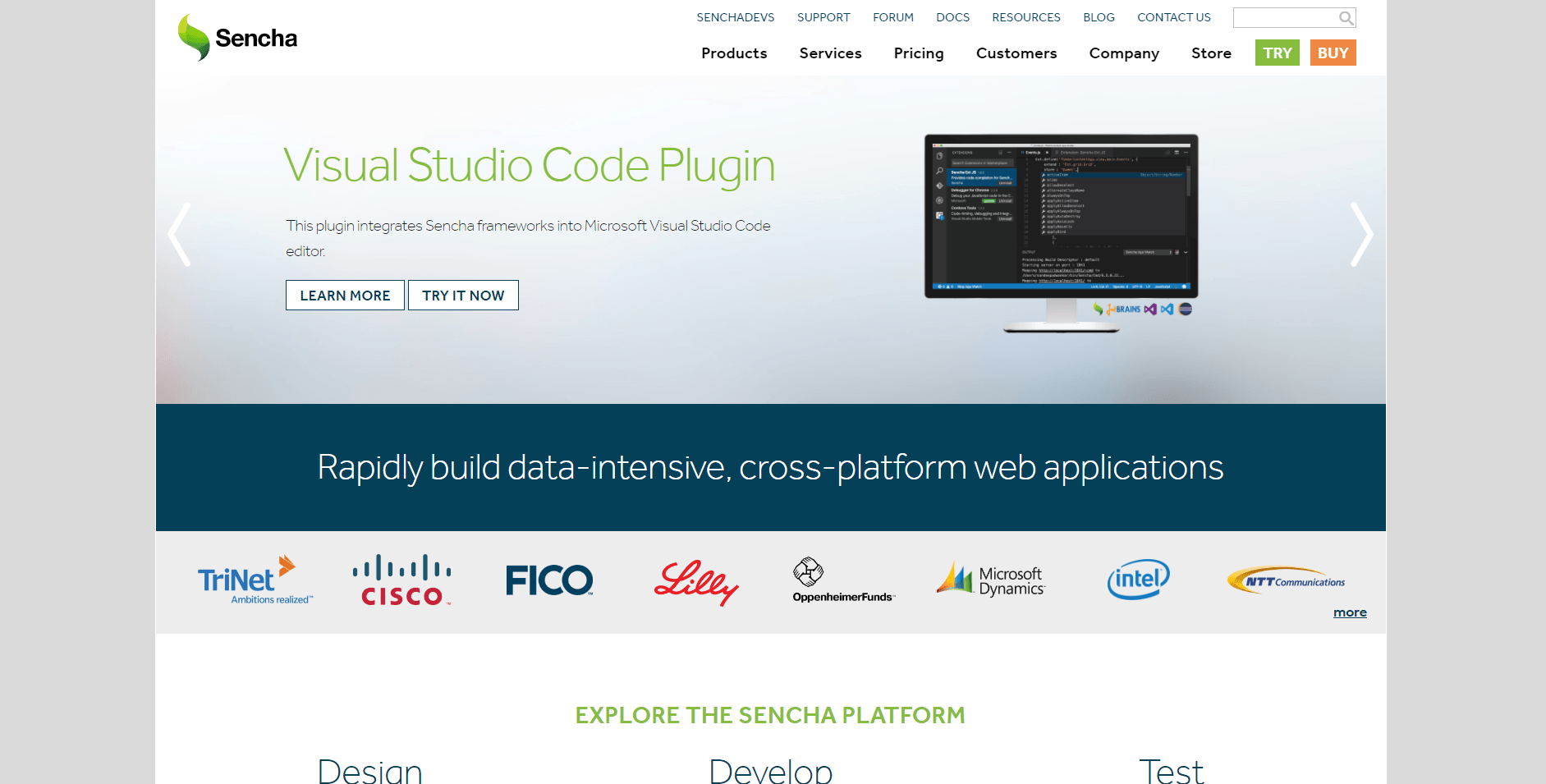
4. Sencha
Sencha Touch is an MVC-based JavaScript framework to build mobile apps. One of the unique features of a mobile app is the ability to use it through the touch of fingertips rather than the mouse or keys. Sencha Touch offers a high level of responsiveness for your application and this helps to improve the customer satisfaction. Compatible with all the latest versions of Android, iOS, and Blackberry, it is used for creating easy-to-navigate apps.
Developers can code in HTML5 format when they use Sencha for mobile app development. After code is created or converted to HTML5, it becomes easier to use them on Android as well as on iOS. Code can be translated with the help of another tool like PhoneGap.
Customers who want their apps faster should opt for Sencha. It is an effective tool for developing native apps without wasting any time. It comes with high-performance UI widgets for forms, menus, lists, and toolbars. This next generation tool has a user-friendly interface that makes it easy to use the app.
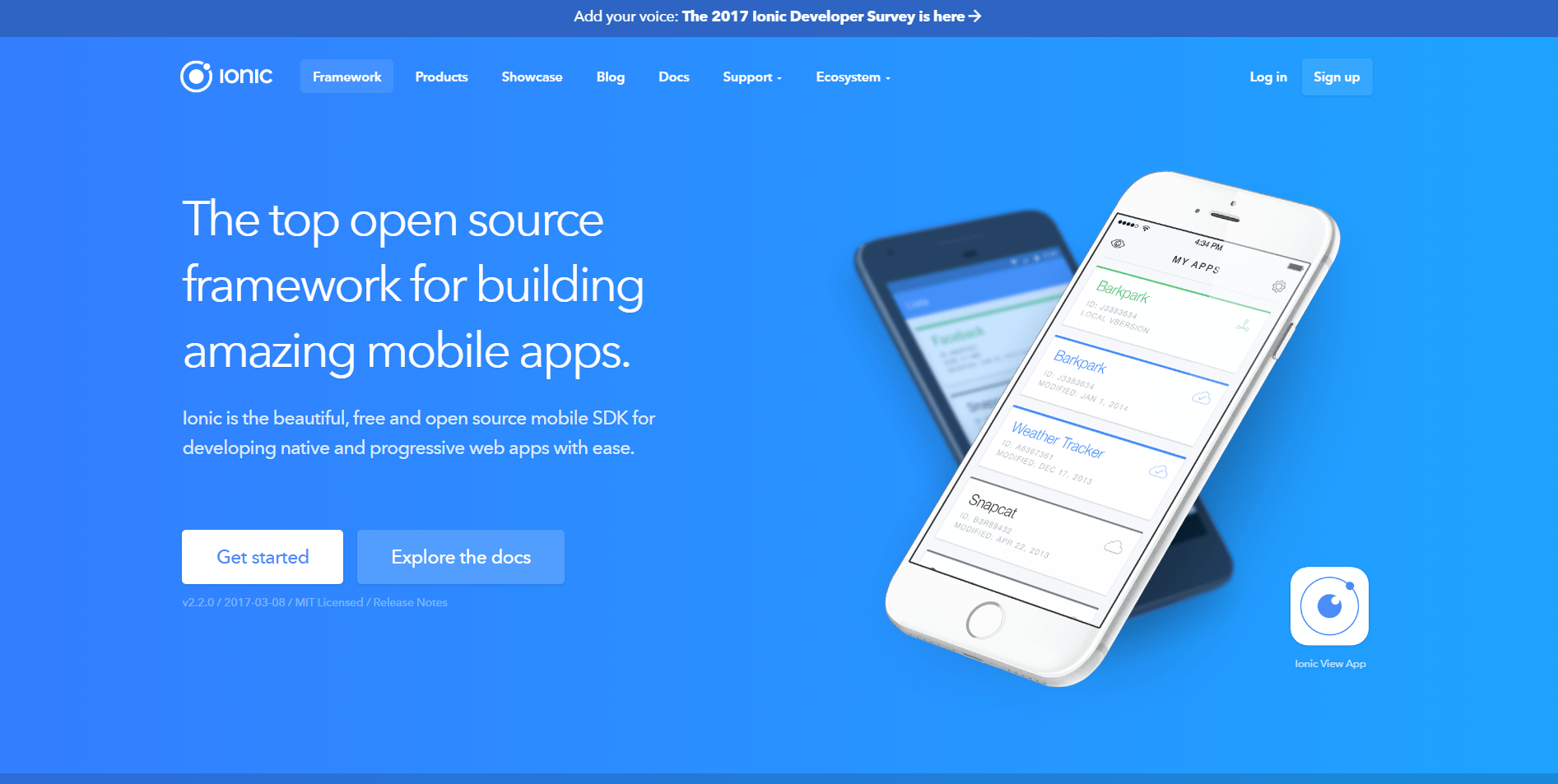
5. Ionic
Ionic is HTML5 mobile app development framework that is widely used for creating hybrid mobile applications. Being a complete open-source SDK, it helps to build hybrid mobile apps using web technologies like CSS, HTML5, and SASS.
It offers great tools and services to build highly interactive apps. Ionic comes with several default CSS components and JavaScript components for building mobile apps. As it is built on top of the AngularJS framework, it becomes easier to build applications.


